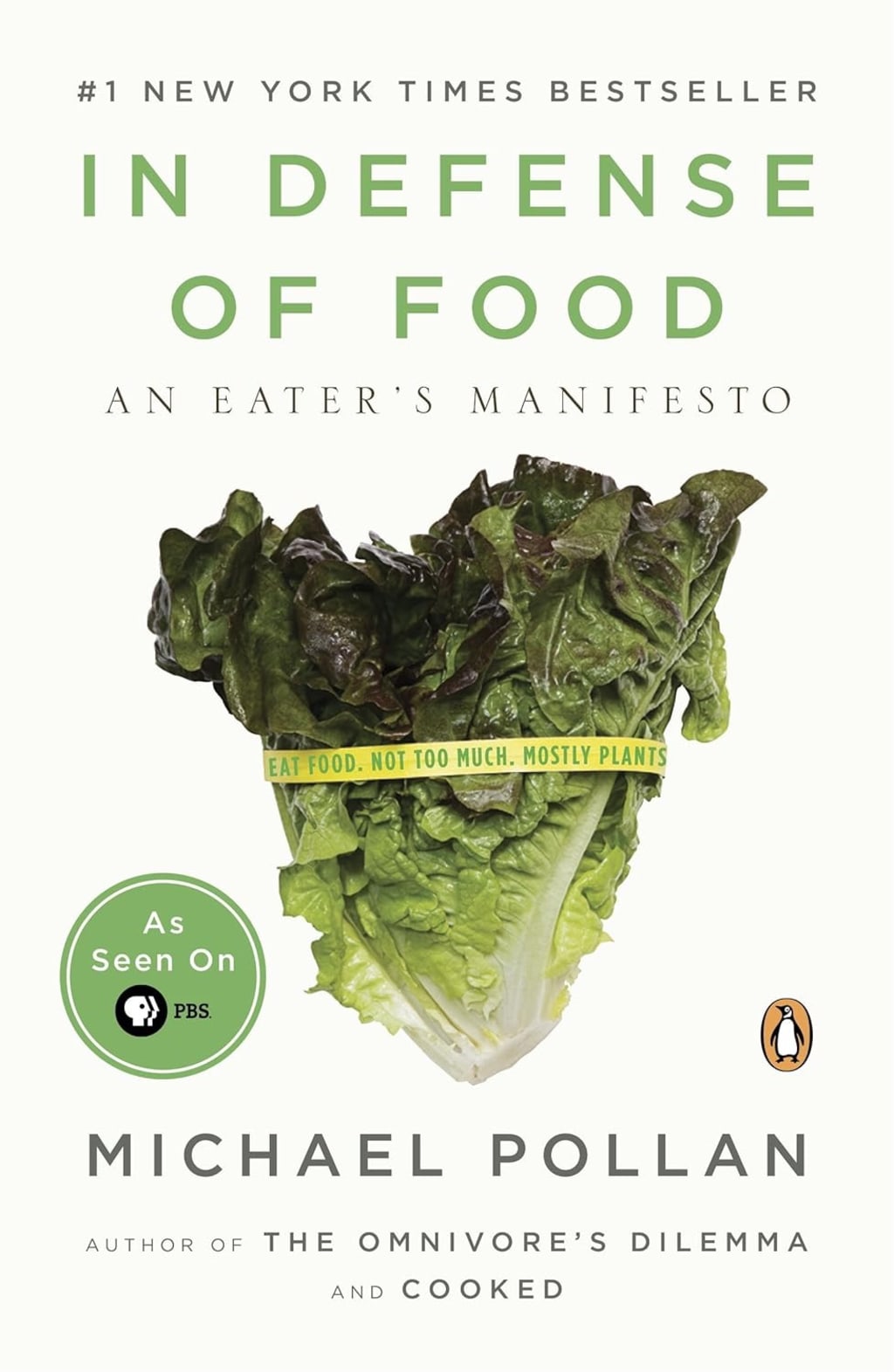Rediscovering Nourishment in "In Defense of Food" by Michael Pollan
Our Bodies Get Energy From Food, Not Processed Garbage!!!

Michael Pollan's "In Defense of Food" serves as a rallying cry for reclaiming our diets from the industrialized food system. Published in 2008, this book challenges conventional wisdom about nutrition, advocating for a return to traditional ways of eating. With a blend of investigative journalism, cultural history, and personal anecdotes, Pollan presents a compelling argument that goes beyond just what we eat—it's about how we should eat for optimal health and well-being.
1. Unpacking Nutritionism: Pollan coins the term "nutritionism" to critique the reductionist approach to food prevalent in Western diets. He argues that focusing on isolated nutrients (like proteins, fats, and carbs) rather than whole foods has led to confusion and unhealthy eating habits. By deconstructing the myths around nutritionism, Pollan encourages readers to shift their focus back to real, whole foods as the foundation of a healthy diet.
2. The Western Diet and Health: Drawing on epidemiological studies and nutritional research, Pollan connects the rise of chronic diseases like obesity, diabetes, and heart disease to the Western diet dominated by processed foods. He highlights the paradoxical nature of our modern food system, which promises health benefits through fortified and enriched products while contributing to the deterioration of public health.
3. The Importance of "Real Food": Central to Pollan's thesis is the concept of "real food." He advises readers to eat food that their great-grandmothers would recognize as such—avoiding heavily processed, packaged products with lengthy ingredient lists. Pollan's advocacy for local, sustainably produced food promotes environmental stewardship alongside personal health benefits, emphasizing the interconnectedness of our food choices with broader ecological and social concerns.
4. Rules to Eat By: "In Defense of Food" offers straightforward guidelines such as "Eat Food. Not too much. Mostly plants." Pollan distills complex nutritional science into practical advice that is easy to remember and apply. This simplicity is refreshing in a landscape where dietary recommendations often change with each new study or fad diet. By encouraging a balanced and varied diet based on whole foods, Pollan provides a timeless framework for healthy eating.
5. Cultural Perspectives on Food: Beyond nutritional science, Pollan explores cultural attitudes towards food and eating. He delves into the rituals and traditions surrounding meals in different societies, underscoring how our relationship with food shapes our health and well-being. This cultural perspective adds depth to his argument, illustrating that dietary choices are not just about calories and nutrients but also about identity, community, and sustainability.
6. Empowerment Through Knowledge: Ultimately, "In Defense of Food" empowers readers to take control of their diets and make informed choices about what they eat. By debunking myths perpetuated by the food industry and offering a clear-eyed view of nutritional science, Pollan equips his audience with the tools to navigate an increasingly complex food landscape. His call to action encourages a reevaluation of priorities—from the supermarket aisle to the dinner table.
Conclusion: Michael Pollan's "In Defense of Food" is more than a nutritional guide; it's a manifesto for reclaiming our food culture and health. Through compelling arguments, accessible language, and a passionate advocacy for real food, Pollan challenges readers to rethink their dietary choices and embrace a simpler, more holistic approach to eating. This book is a must-read for anyone interested in understanding the profound impact of food on our lives and our world.
Pollan's work continues to resonate as society grapples with issues of food sustainability, nutrition, and health. "In Defense of Food" remains a beacon of clarity in an often confusing nutritional landscape, offering timeless wisdom that encourages readers to eat well and live well.
Thank you 🙏
Future of Resilience
About the Creator
Amy Johnson
I enjoy writing product reviews, relationships, and parenting blogs. Now, I'm excited to venture into short story writing, weaving tales that entertain, inform, and inspire.
Enjoyed the story? Support the Creator.
Subscribe for free to receive all their stories in your feed. You could also pledge your support or give them a one-off tip, letting them know you appreciate their work.






Comments (2)
Quite right. As long as we follow the food groups or pyramid we should be fine. Good article.
Simple real food is all humans need. We survived without mass-produced heavily processed food for millennia and need to get back to that. Thanks for sharing your review of what seems to be a great book.